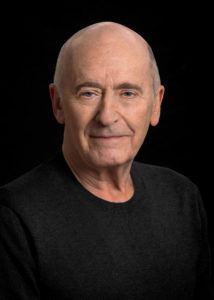Reshaping stereotypes can improve professional relationships and, ultimately, patient safety. Jeffrey B. Cooper, Ph.D., will deliver that impassioned message during today’s “ASA/APSF Ellison C. Pierce Memorial Lecture: Respectful, Trusting Relationships Are Essential for Patient Safety, Especially the Surgeon-Anesthesiologist Dyad.” Dr. Cooper is the Founder and Executive Director Emeritus of the Center for Medical Simulation, Professor of Anaesthesia at Harvard Medical School and faculty in the Department of Anesthesia, Critical Care and Pain Medicine at the Massachusetts General Hospital. The center is dedicated to the use of simulation in health care to improve education and training and to avoid patient risks.

Jeffrey B. Cooper, Ph.D.
Dr. Cooper’s central focus will be on something he said must become a new objective for anesthesiologists and surgeons so they can collectively move perioperative safety to the next level: the relationship between all team members and especially the anesthesiologist-surgeon dyad. He will take a critical look at how surgeons and anesthesiologists should work together in the best interest of their patients.
“Some or many in the audience may squirm in their seats hearing what I have to say. I’ll be attacking negative stereotypes that people hold and that prevent true collaboration and achieving the needs of both physician specialists,” said Dr. Cooper. “But I’ll be suggesting some concrete actions everyone can take to move the needle on the patient safety gauge still higher.”
1:30-2:30 p.m.
Saturday
W320 Chapin Theater
The annual honorary lecture was established by the Anesthesia Patient Safety Foundation (APSF) and ASA to recognize and sustain the memory of Dr. Pierce, the founding President of APSF and past ASA President (1984). Dr. Pierce’s vision and unwavering commitment to anesthesia patient safety led to the formation of APSF in 1985 as the first medical specialty foundation devoted solely to addressing patient safety. It’s vision: “No one shall be harmed by anesthesia care.”
During the lecture, Dr. Cooper also will pay tribute to some of Dr. Pierce’s leadership qualities that were critical to the formation and success of APSF and offer a broad overview of a collection of forces that moved the anesthesiology specialty forward to the “patient safety exemplar that it has been for decades,” he said.
Dr. Cooper earned a bachelor’s degree in chemical engineering in 1968 and a master’s degree in biomedical engineering in 1970, both from Drexel University. He then completed a Ph.D. in biomedical engineering at the University of Missouri in 1972. He has devoted his life to patient safety, doing landmark research in medical errors starting in the mid 1970s. In an effort to reduce human and system errors, Dr. Cooper led a team that developed one of the first microprocessor-based medical technologies, the Boston Anesthesia System. He also helped create the first safety-related standards for anesthesia. He is one of the founders of APSF and served on the Executive Committee from its inception until he rotated off membership last year.
Dr. Cooper has been awarded several honors for his work in patient safety, including the 2003 John M. Eisenberg Award for Lifetime Achievement in Patient Safety from the National Quality Forum and the Joint Commission on Accreditation of Healthcare Organizations and the 2004 Lifetime Achievement Award from the American Academy of Clinical Engineering. The MGH Department of Anesthesia and Critical Care established the Jeffrey B. Cooper Patient Safety award in his honor. He received the ASA Distinguished Service Award in 2013 and is the only non-M.D. to receive the honor.
Return to Archive Index